Dog breeders will be familiar with the well-known mantra “adopt don’t shop”; the rallying cry for many animal rights activists.
While the sentiment is commendable, the widening divide between rescues and breeders isn’t solving the escalating number of abandoned pets.
In this article, we suggest a different approach.
According to PETA, 20,000 dogs are destroyed each year due to capacity issues.
Why the dramatic rise in pet abandonment?
The wake of the “pandemic puppies” crisis, combined with the rising cost of living, has created a “perfect storm” for animal welfare, according to the RSPCA, which has reported a staggering rise in pet abandonments.
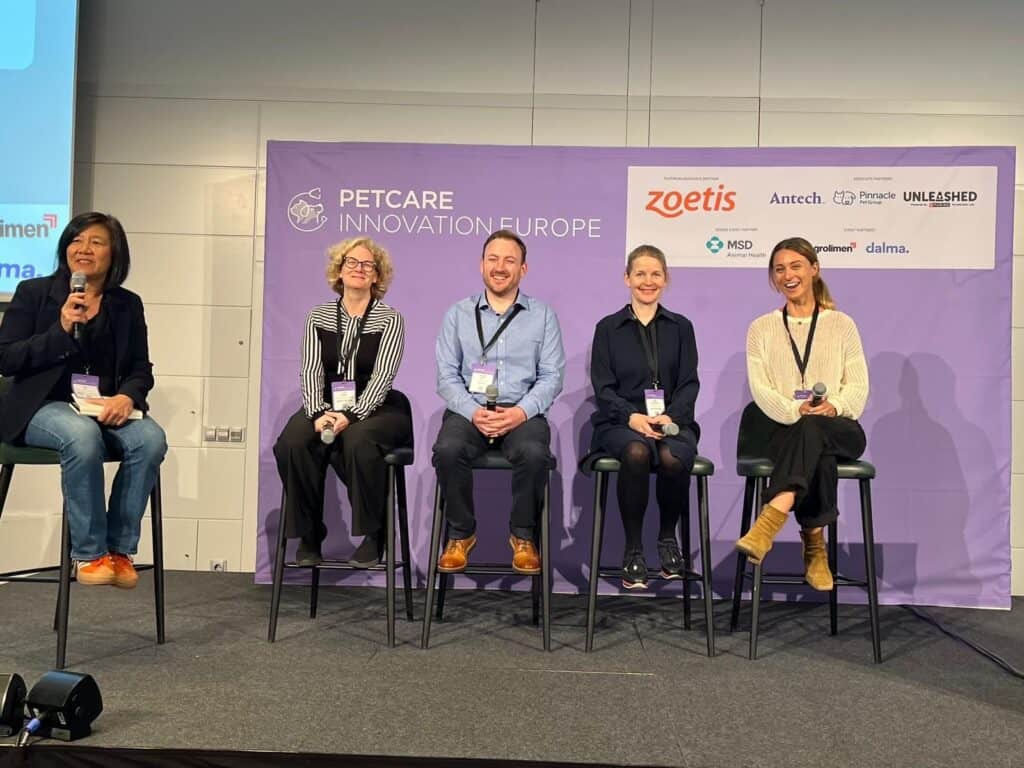
Covid-19 saw an unprecedented surge in pet ownership as people sought companionship during lockdowns.
At Breedera, we saw a sharp rise in the number of new app users, overwhelmingly from first-time breeders. Whilst it was reassuring to see so many using technology like Breedera to track the most important health indicators, it still highlighted a problem in the number of dogs being bred by people lacking in the experience compared to existing, regular, responsible breeders.
Consequently, and unsurprisingly, this spike has led to a wave of untrained and unsocialised pets.
According to a Royal Veterinary College (RVC) study funded by Battersea Dogs and Cats Home, UK residents who acquired dogs in the first nine months of the pandemic reported an average of five behavioural issues per dog. These ranged from pulling on the lead (67%) to separation anxiety, which affected one-third of dogs at 21 months old.
Breedera Founder, Mike White spoke at Petcare Innovation Europe in June 2024 alongside Lorna Winter, qualified dog behaviourist and Head of Programme at Zigzag, the popular puppy training app, about this exact issue:
“Since the pandemic, we’ve seen an increase in the number of dogs suffering with separating related issues, along with more issues with puppy biting. Fundamentally, these issues haven’t “cleared up” after the pandemic but have actually worsened,” Lorna explains.
“We have a combination of people who are working from home a lot more, meaning that a lot of dogs are not getting enough sleep and relaxation, which leads to more bitey puppies in general (puppies need 18-20 hours a day sleep). We then have the opposite issue: where people are generally home more, pups and dogs are finding it a little harder to learn how to cope with being alone, and often these dogs are not getting ‘out and about’ enough to learn the key life skills that will help them with overall socialisation”
It’s clear to us that the combination of these behavioural issues and the current cost of living crisis has left many owners feeling overwhelmed and unable to keep their pets.

The role of breeders in reducing pet abandonment
It’s clear that the current system is failing both pets and their owners. In such an emotional and troubling situation, it’s easy to assume that the blame lies at the door of those producing our pets and bringing them into the world. This may be true of some individuals. But, instead of villainising all breeders, we must focus on how empowering responsible breeders can be a part of the solution.
At Breedera, we know that responsible breeders play a crucial role in ensuring the health, temperament and welfare of pets.
The hundreds of breeders we have spoken to while developing our dog breeding app, and the thousands we engage with every year, are clearly instrumental in the early socialisation of animals, conducting health screenings and breeding for specific qualities that contribute to the lifelong well-being of pets and the satisfaction of pet owners.
The British Veterinary Association (BVA) has emphasized that irresponsible breeding or sourcing of animals is a major health and welfare concern. So, by supporting responsible breeders, we can address these issues at the root.
Supporting responsible breeding for a better future for pets and owners
At Breedera, we believe in empowering breeders to make a positive impact on pet ownership. Our app is designed to alleviate the administrative burden on breeders, allowing them to focus on what they do best—raising healthy, well-adjusted pets.
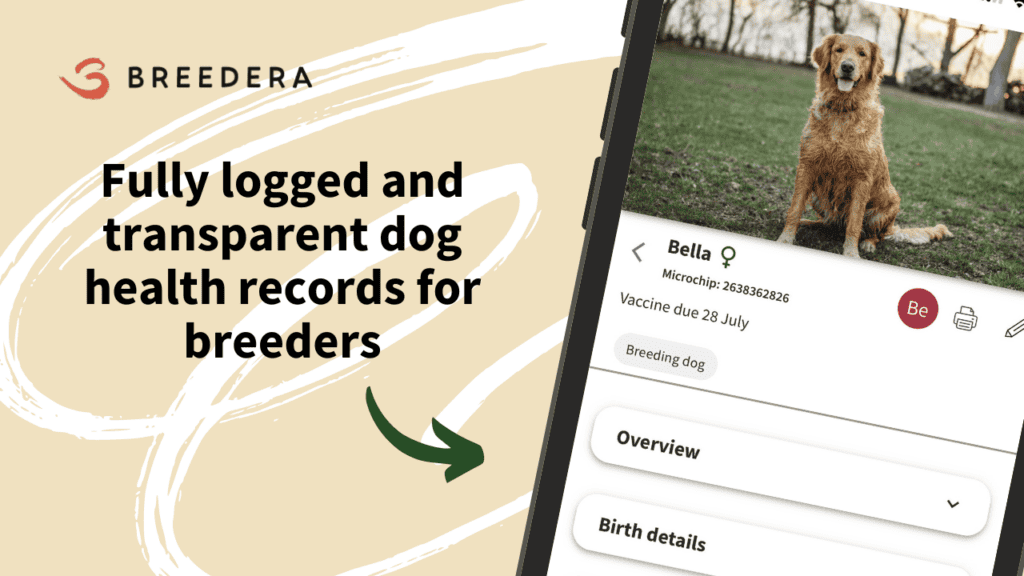
Here’s how we can make a difference:
Education and awareness
Educating breeders and potential pet owners is key to creating a more ethical and informed pet purchasing system.
Through our content and growing community, we’re on a mission to provide as many resources as possible for breeders to share with new pet owners about the importance of responsible breeding.
Technology
Our technology streamlines dog breeding admin and encourages complete transparency about a puppy’s health and heritage, including growth rates, weights, treatments, vaccinations, feeds and more.
We make it super simple for breeders to maintain their breeding records and stay compliant with local legislation.
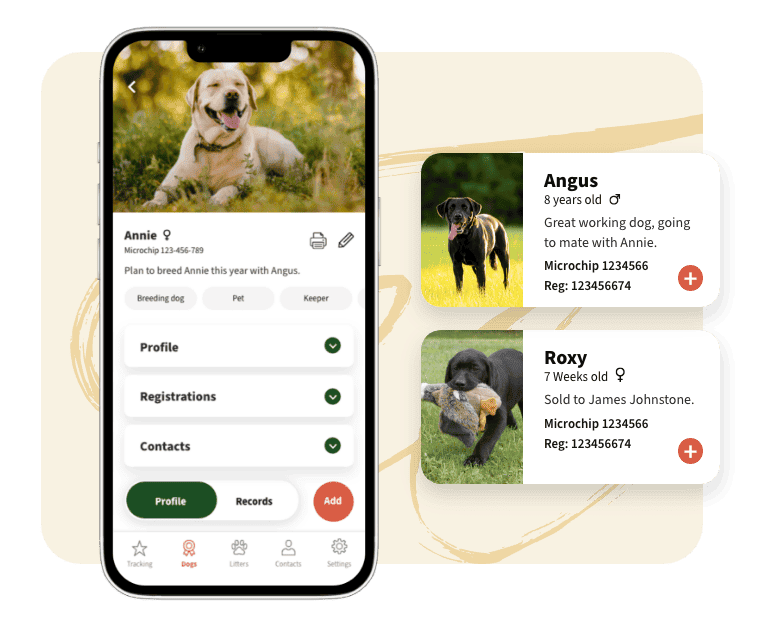
Transparency
We are solely focused on helping breeders with admin and not incentivised to promote individual breeders to the wider public. Breedera is not an advertising platform and we do not promote breeders to produce and sell more puppies. We’re here to ensure the puppies that breeders do produce are done so in the most transparent, ethical and responsible way.
This gives us a unique position to promote best practices and be a voice within the breeding community.
Community and conversation
Fostering a community of responsible breeders and having conversations about best practices creates a network of advocates for change within the pet industry.
Our growing online community over on Facebook, and the two-way communication we encourage through our blog and regular newsletter, are a resource and support tool for like-minded breeders.
By supporting breeders from the very beginning, we can prevent future crises and ensure a healthier, happier future for our pets.
What do you think? Do responsible breeders have a role to play in reducing pet abandonment? Share your thoughts here.




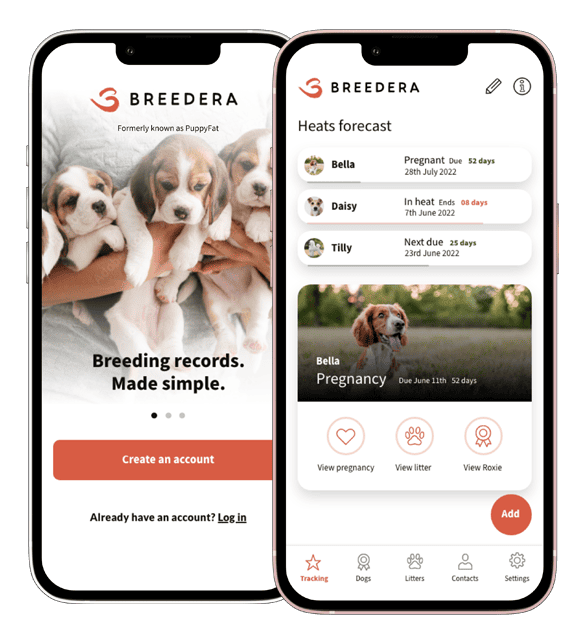





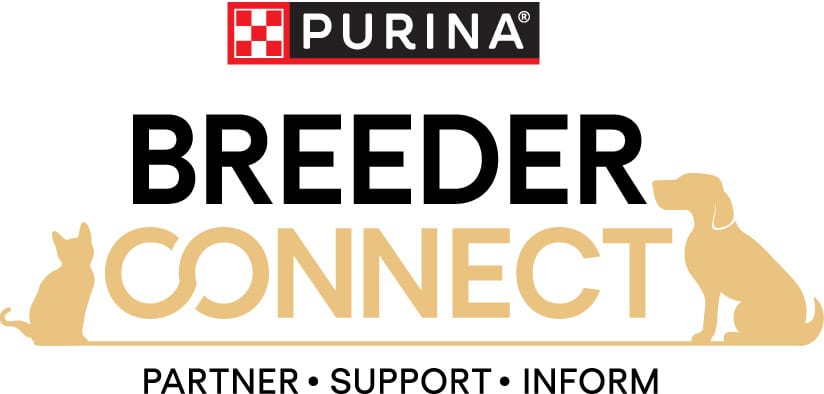



By Courtney Farrow
Courtney supports Breedera with all our online content. Specialising in heart-led copywriting for purpose-driven brands, she is passionate about Breedera's mission to make responsible breeding practices easy and rewarding and champion more traceability and transparency in the pet industry.